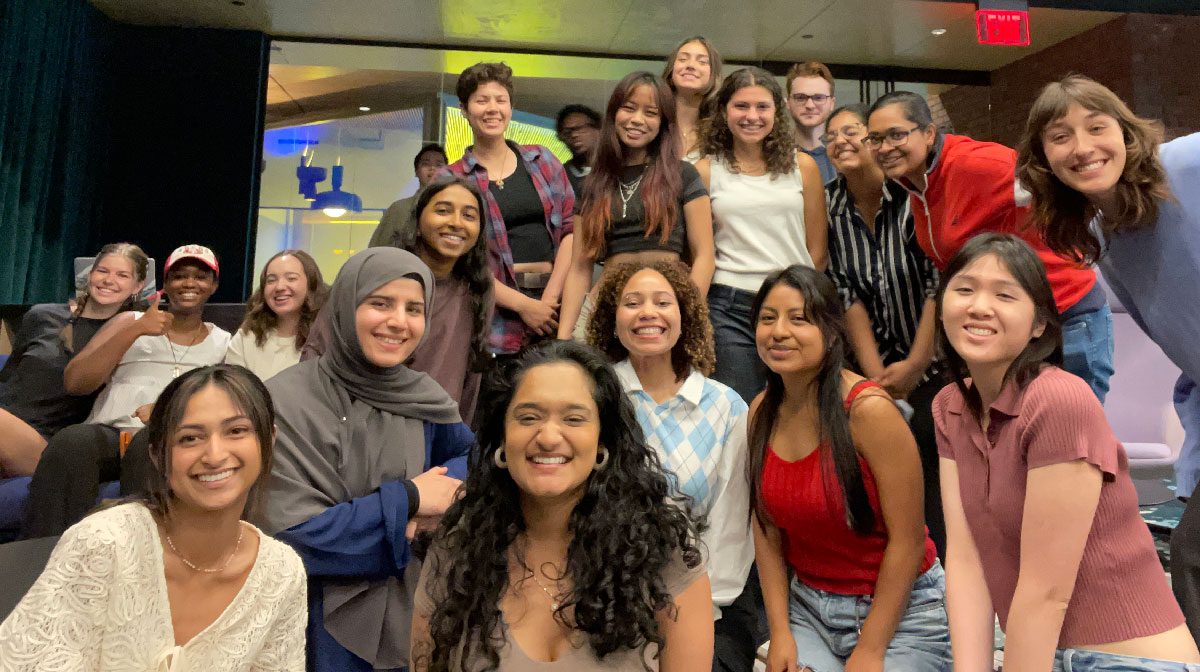The Critical Medical Humanities experience introduces the sociocultural and historical factors that influence health care and the social, economic and political systems through which it’s delivered.
Experience at a glance
- Offered winter quarter
- Max. enrollment of 25 students
- Prerequisites:
- Applicants must be in good academic standing
- Completed lower-division writing requirement prior to experience start
- Experience combines coursework at Aggie Square with internship or research experience
- Experience includes courses in science and technology studies as well as religious studies
- Completing experience fulfills the medical humanities minor
- Applications accepted Sept. 29 – Oct. 31 on first-apply, first-review basis
- No program fees
Watch the video recording of the Oct. 8 information session.
Who is this experience for?
- Current undergraduate students interested in careers that promote social equity and justice in health care, including health care providers, advocates or policymakers
- Students interested in community engagement
- Students interested in improving health outcomes for all
- Students who seek a quarter-long experience that combines a community engagement course with an internship or research experience
- Students interested in a Sacramento campus experience
Read more about Critical Medical Humanities
What do students do?
- Spend two days a week in coursework and lectures at Aggie Square
- Intern or research up to three days a week
- Learn about challenges and innovations in health care, including medical technologies, data analysis, privacy, cultural sensitivity, equity and access to care
- Explore the history, social institutions and power dynamics that shape the current health care system and consider new solutions


The curriculum
- 4 units: Religion, Magic and Science
- 4 units: Gender and Science
- 4 units: Justice, Equity and Privacy in Medical Humanities
- 4 units: Data and Society
- 4 units: Health and Medical Technologies course
- Internship or research project with community partners such as Asian Resources, Inc. Community Services, California Department of Public Health, UC Davis Comprehensive Cancer Center, UC Davis Center for Healthcare Policy and Research, Elica Health Centers and Shifa Community Clinic
- Guest-speaker series featuring public health, genetics, law and history experts
- Networking opportunities with experts
- Field trips focused on community history and health
Why Aggie Square?
With its Sacramento location, Aggie Square brings together university, industry and community to foster collaboration and creativity. With its proximity to UC Davis Health researchers, ongoing partnerships with community organizations and programs, as well as a state-of-the-art technology campus, Aggie Square resides at the intersection of health care, economic and social systems central to the Critical Medical Humanities experience.



